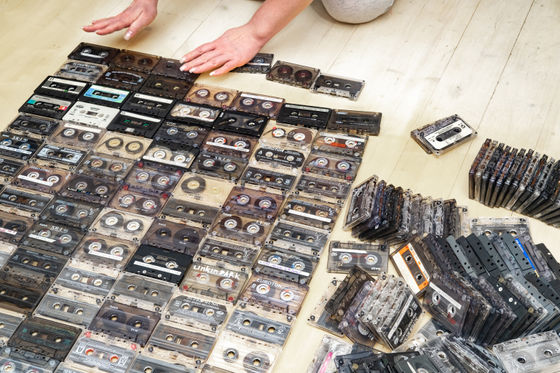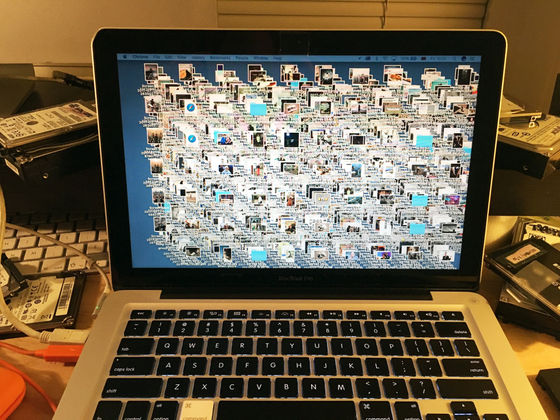What is the modern disease 'digital hoarding disease' that makes it difficult to throw away unnecessary data?

by
With the spread of smartphones, it has become commonplace to take pictures of meals and travel destinations and save them or upload them to the Internet, but if you store too much data, your storage will quickly fill up. It gets messy and needs to be organized once in a while. However, some people are afraid of losing their data and are unable to delete it, and end up hoarding a pathologically large amount of digital content. An information technology expert explained the survey results on such `` digital hoarding ''.
Modern-day hoarding: A model for understanding and measuring digital hoarding - ScienceDirect
https://doi.org/10.1016/j.im.2022.103700
With seemingly endless data storage at our fingertips, 'digital hoarding' could be an increasing problem
https://theconversation.com/with-seemingly-endless-data-storage-at-our-fingertips-digital-hoarding-could-be-an-increasing-problem-190356
In recent years, social problems such as garbage mansions that accumulate garbage and unnecessary furniture, and animal hoarding, where pets grow uncontrollably and become unmanageable, are often in the news as social problems. It is said that the cause of this is a mental disorder called 'hoarding disorder' or ' compulsive hoarding ' in the field of psychiatry.
Digital hoarding is the digital version of hoarding syndrome, a condition in which people acquire and hoard large amounts of digital content they don't need. Especially in digital hoarding, the problem is compounded by the fact that unlike physical items, the data is not directly visible and takes up less space.

A research team led by Darshana Sedera, a professor of information systems at Southern Cross University in Australia, has 846 people about digital hoarding, which is rapidly becoming a problem as a harmful effect of data storage costs that are almost zero. We conducted a survey targeting
They found that people who digitally hoarded had higher levels of anxiety than those who didn't. Specifically, 37% of the anxiety levels measured by scales related to depression, anxiety, and stress were explained by digital hoarding. Among the cases found in the survey, some people accumulated a total of 40 TB of digital content, including photos stored on storage devices and uploaded to social media.
However, in some cases, such as creators who create video content and people who manage business data, having a large amount of data does not necessarily mean they are pathological.
Therefore, Mr. Sedera has set three criteria as the definition of digital hoarding: ``constantly acquiring digital content'', ``difficult to discard data'', and ``scattering data''.
The first, 'constant acquisition,' refers to the constant collection of digital content without considering the value or purpose of the data. Electronic communication is the norm these days, so even non-digital hoarders tend to keep e-mails, images, videos, etc. just in case. However, if you feel great reluctance to discard the stored data and cannot easily delete it, it may fall under the second criterion, 'Difficult to discard data.'
In addition, important data such as valuable documents and commemorative photos taken at travel destinations are neatly organized by file name and storage location, but digital hoarding randomly collects them. Data is stored in a mess. This is the third 'data scattering'.

by Wikised
In today's society, where the Internet has spread, life is inseparable from digital content. However, embracing too much digital content and becoming digital hoarding can have a serious impact on mental health.
That's why Sedera has four pieces of advice for people who tend to hoard data:
・Get into the habit of cleaning digital content once a year so that you can get rid of data.
・Try to reduce unnecessary digital content.
Find your own way to manage your photos, media files, emails, and more.
・Reconsider the importance of SNS, such as social app groups that you casually participate in, and leave only what you need.
If you're struggling with these digital hoarding measures or feel suffocated by too much data, consider talking to a mental health professional or doctor, Sedera said. I was.
Related Posts:
in Software, Posted by log1l_ks







